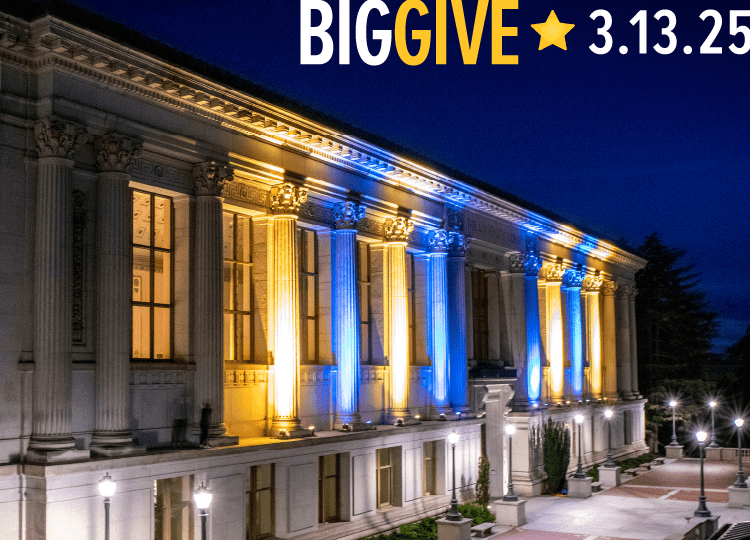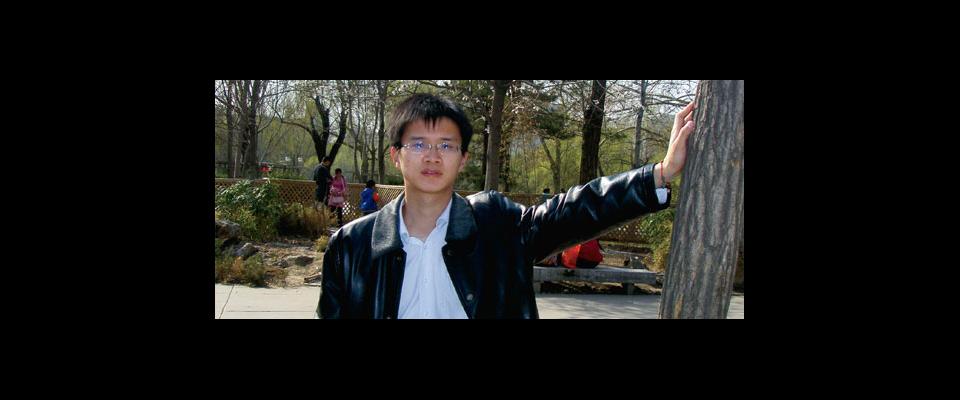Connecting the dots between Confucianism, the Cultural Revolution, and capitalism.
I’ve been afraid to revisit those cities that are the economic engines of the renewed China, afraid to be affronted by masses of Shanghai and Beijing yuppies shooting Starbucks doppio espressos before heading into an excessively air-conditioned office to sell questionable stocks to China’s “to be rich is glorious” new middle class, and to see them scarfing down KFC and Pizza Hut slices chased by supersized Coca-Colas for lunch.
This was not the case in 1983, of course, during my first visit to China, when Shanghai and Beijing were relatively low-rise, old-world city centers. Most of the young still dressed functionally and simply in post–Cultural Revolution blues, browns, and PLA greens. Women didn’t wear makeup and almost everyone’s face gave off a shiny, rosy glow, undoubtedly resulting from their highly physical lives of bicycling and walking everywhere, the traditional diet of rice or noodles with mostly vegetables, and a slower pace of living that notably included a lot of irritating boredom among China’s young adults.
But my nightmare scenario didn’t come to be. Underneath the Western embrace the young women and men whom I got to know this past December—the Chinese yuppies of Shanghai and Beijing—remain very much Chinese. Oh, the men comfortably wore their form-grabbing suits and J.Crew and Gap-style casuals, and the women coyly swung their long black hair behind their model-skinny frames as they clopped about on trendy knee-level, high-heel boots, their lumpy handbags holding their ringing cell phones.
They know that McDonald’s, KFC, and Pizza Hut are junk food, and knowing that, they’ll still eat it occasionally while basically sticking to Chinese restaurants (which are cheaper anyway). Do modern Chinese women cook anymore? More than half the patrons at any number of modern restaurants where I dined in the evening were women—often alone.
They all seem to work longer hours than Silicon Valley geeks over the five- to six-day workweek and still attend graduate-level courses on their one day off because, well, pick one of several reasons. To increase one’s competitiveness, for there are just too many people in China. Because they are proud of New China, of the recently completed African summit in Beijing, where China struck a New Deal of continental proportions with practically every African nation. Because of the 2008 Olympics, with its steel “bird’s nest” stadium and other eye-popping venues. Because that world-stage spotlight will be followed by the 2010 World Expo in Shanghai. Because they feel secure of their place in the New China of today and tomorrow.
Mainly, I found that the young men and women who opened up to me are happy, healthy, in love with life, and confident of a bright future. And probably because of all this, they’re brimming with energy, and eager to suck up from me whatever they can about life in America, business, law, culture, how Chinese Americans are treated, and most of all, any spare time I may have to practice speaking American English with them.
They share some common background characteristics. All of them have selected working English names such as Stanley, Connee, Kevin, Lily, Sue; and then there’s a perspicacious, pixyish office manager who calls herself Rainbow. They are of the post-Cultural Revolution generation and range in age from the mid-20s to the mid-30s. They are graduates of a major Chinese college or university, and several are grad students, either full-time or on weekends. Every one of them was a sole child under China’s “one-child” planning policy and after a while I learned to stop asking about their brothers and sisters. The guys love Yao Ming and hate Shaq because he roughs up Yao Ming. They are more up on the Lakers, the Bulls, and the Heat than I am, and everyone loves Kobe.
Here are some thumbnails on my new friends, the yuppies of the New China:
Kevin is in his mid-20s, with a wiry, athletic physique, and he dances up a storm at discos. He is fluent in English and German, the result of spending six months in Germany as a government intern for a representative from Bavaria. He works as a rep for a local machinery company and is planning to apply for grad school in America.
His parents are educators in the city of Tsingtao in the northeast of China, but because the Cultural Revolution interrupted his mother’s college education, her career stalled in a lower position. His father rose to the level of assistant vice-principal at the young age of 33, but because of his outspoken attitudes against corruption, never advanced past that. Now with the anti-corruption campaign, many of his former colleagues who enriched themselves through corruption are sleeping uneasily as Kevin’s father continues to live his simpler but worry-free life.
Kevin shared his shock that recently his dad gushed how proud he was of his accomplishments, the first time his father had ever expressed his love openly. Rare for a Chinese father, says Kevin.
Kevin’s New Year’s date was tallish, svelte, well dressed, and fashionably shod with the just-belowthe- knee, high-heeled boots that everyone is wearing in Shanghai. Finishing an advanced degree in finances, she had spent the afternoon with Kevin discussing MBOs (or management buyouts, as she decoded for me). After dinner, we walked among a Times Square–like gathering of carefree, celebrating, and alcohol-free young adults, stretching from People’s Square through the pedestrian- only section of Nanjing Road and toward the riverbank of the Bund commercial zone.
Rainbow, in her late 20s, is the petite, energetic, and very able manager of the local center of the Mandarin House Institute that arranged my private tutorial program. Born and raised in a suburb of Beijing, she is finishing her master’s in economics on weekends—needing only to complete her ethics courses, she hastens to add. Rainbow lives with her husband in Pudong, the spacious, modernist section of Shanghai, ensconced on the eastern shore of the Huangpu River directly across from the old city on the western shore.
Her husband, slightly older and in his early 30s, works for a major Chinese insurance company and is very proud of his modern office tower, which he pointed out to me several times. He was surprised that I not only had read but also still have on an old bookshelf somewhere, seven volumes of the Selected Works of Mao Tse Tung. He claims that if one understands Mao’s writings, one understands China, and surprising for one who loves his capitalist insurance job and the old Confucian art of calligraphy, he still believes that the Cultural Revolution was not a mistake. I differed with him and simply said that there was no justification for so many people to suffer, as Rainbow clucked her agreement during one of those friendly areas of disagreement between two otherwise happy and close partners.
My first tutor, Lily, said straightforwardly, “I don’t believe in anything, just in myself, and in my own advancement,” when she was teaching me the Chinese terms for philosophy, ideology, religion, and spirituality. At the age of 27, Lily lives at home with her parents. She has a steady beau whom she plans to marry at some point. Lily is a native Shanghainese who suffers from a chronic cough that she claims is caused and agitated by Shanghai’s pollution, a condition that would from time to time interrupt our daily three-hour lesson.
But when I pressed her, Lily said she believed in taking care of her family, her parents especially, but also her relatives. Then she spoke of her alumni association members, all of whom keep in touch through an email list set up by the college, and said that she felt a strong association with her school chums and would help any alumni if asked. When we spoke of her plans to attend the Beijing Olympics because the government had just released a large number of lower-price tickets for locals, including the possibility of her staying with alumni friends who lived in Beijing, she was shocked when I suggested that they might wish to rent out their home to strangers at maximum rents. “No, the Chinese are not like that,” Lily insisted. “They would never deny a friend hospitality just to make some money.” She looked at me as if I had suggested that her friends were crooks.
I saw that underneath her generation’s coolness and aversion to the blind ideological zeal of the Red Guards, Lily was not as devoid of values as she might think. There remains an underlying cultural value of mutuality of family and friendship, of interdependence and generosity, that the current rush toward wealth, including her own ambitions, apparently have not displaced. For Lily, the competition is in the workplace and not so much in one’s personal life. Whatever internalized values make Chinese people Chinese were clearly intact in her despite her surface utterances.
Andy, a southerner from the Kwangtung province, is a grad student in American literature at Beijing’s Language and Culture University, the premier language institute in China, where many of its diplomats are trained. I lecture there on my new book, The Eighth Promise, which is being surprisingly well-received in American lit circles in Chinese universities.
To my surprise, unlike his counterparts in Shanghai, Andy is interested in civil service or an NGO career and will be interning in a Washington, D.C.–based program this year to learn to apply modern business techniques to Chinese nonprofits. These are the organizations that deliver social services to China’s population and run the information lines of an increasingly complex modern governmental and health system.
In a fit of pride, Andy whisked me off to Tiananmen Square for the nightly lowering of the flag and then walked me over the meridian line from the Imperial Palace through the Square through Mao’s gravesite and through the Gate of Heavenly Peace. The next day, he took me through the 2008 Olympics showplace stadium.
Andy most loves those sections of The Eighth Promise that describe my years as a civil rights activist and my experiences in the counterculture of the San Francisco Bay Area.
Sue, a tall Manchurian in her mid-20s and also a grad student in American literature at the Beijing Language and Culture University, struck me as a contradiction. Sue is completing her master’s in green economics to implement China’s new Green GDP Index, tracking the real costs of development and how profits must be adjusted to reflect cleanup costs and resource depletion.
Yet she loves traditional Chinese medicine and argues hotly against a recent attack by a Chinese professor who is advocating its abolition and adoption of modern Western medicine and pharmaceuticals. To my surprise, Sue is also a practitioner of the Buddhist meditation method of mindfulness, and when next I return to Beijing, wishes to introduce me to her Chan Buddhist teachers, particularly one who is fluent in English.
One afternoon, we walked over the frozen waters of the lake by the Summer Palace and later, as we viewed the classical stories painted onto beams of the pavilions along the lake, she brought many of them to life by telling me their stories and place in Chinese history.
Like all her peers, Sue is modern, free-thinking, and yet more deeply Chinese than perhaps she can consciously understand.
This gives me hope that China’s youth is adapting to modern ways without cutting off its wondrous heritage. There’s a new Chinese personality in the making and it will be at least five to ten years before we can really describe it with clarity. But the young Chinese I know are capable of connecting the dots between the genius of the mystical gardens of the canal city of Suzhou and the wondrous, modern, technological towers, performing arts centers, and planned expanses of its prototypical municipality of the future, Pudong.



















